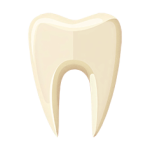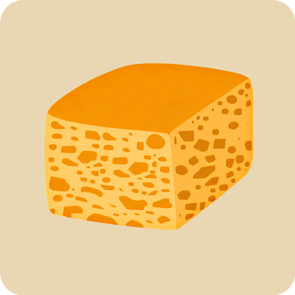
Teeth Health
Teeth health is crucial for effective chewing, clear speech, and overall oral wellness, upheld by good hygiene, proper nutrition, and regular dental care.

Calcium
(Tooth Enamel Strength & Bone Density)
- Provides energy for kidney filtration and waste removal.
- Found in whole grains, fruits, and vegetables.

Phosphorus
(Enamel Repair & Mineralization)
- Works with calcium to rebuild and protect tooth enamel.
- Found in fish, dairy, nuts, lentils, and whole grains.

Vitamin D
(Calcium Absorption & Bone Health)
- Helps the body absorb calcium and maintain strong teeth.
- Found in sunlight, fortified cereals, fatty fish, and egg yolks.

Vitamin K
(Bone Density & Gum Health)
- Supports bone strength and helps prevent gum disease.
- Found in leafy greens, broccoli, Brussels sprouts, and fermented foods.

Vitamin C
(Collagen Production & Gum Health)
- Maintains healthy gums and prevents inflammation.
- Found in citrus fruits, bell peppers, strawberries, and tomatoes.

Magnesium
(Enamel Protection & Bone Strength)
- Contributes to strong enamel and overall tooth durability.
- Found in nuts, seeds, whole grains, and dark chocolate.

Fluoride
(Cavity Prevention & Enamel Remineralization)
- Prevents cavities by strengthening and remineralizing enamel.
- Found in fluoridated water, tea, seafood, and toothpaste.

Iron
(Gum Tissue Health & Oxygen Transport)
- Prevents anemia-related gum issues and promotes oral healing.
- Found in red meat, beans, lentils, spinach, and fortified cereals.
Top foods good
for the Teeth ✓

Cheese
High in calcium and casein, which strengthens enamel and neutralizes acids.
Yogurt
Packed with calcium and probiotics, supporting both teeth and gum health.
Leafy Greens (Spinach, Kale)
Loaded with calcium and folic acid, helping maintain strong enamel.
Almonds
A great low-sugar, high-calcium snack that strengthens teeth.
Figs
Naturally rich in calcium and fiber, promoting strong teeth and healthy gums.
Salmon
High in vitamin D, which helps your body absorb calcium for stronger teeth.
Carrots
Crunchy texture stimulates saliva production, which helps clean teeth.
Celery
Acts like a natural toothbrush, scrubbing plaque and bacteria away.
Apples
Increase saliva flow and provide fiber for natural cleaning.
Blackberries
Contain calcium and vitamin K for enamel strength.
Green Tea
Rich in antioxidants and fluoride, which helps prevent cavities.
Water
Keeps the mouth hydrated and washes away food particles and bacteria.Top foods bad
for the Teeth ✘

Sugary Candy
Sticky sweets (like caramel & gummies) cling to teeth and fuel cavity-causing bacteria.
Soda & Energy Drinks
High in sugar and acid, which erodes enamel and leads to decay.
Citrus Fruits (Oranges, Lemons)
Acidic nature weakens enamel over time.
Dried Fruits
Sticky and high in natural sugars, making them just as harmful as candy.
Potato Chips
Starchy, turns into sugar, and gets trapped between teeth.
White Bread
Processed carbs break down into sugars that feed bacteria.
Coffee & Tea
Can stain teeth and, if sweetened, contribute to decay.
Ice (Chewing It)
Can chip and crack teeth, leading to long-term damage.
Vinegar-Based Foods (Pickles, Ketchup)
High acidity wears down enamel.
Alcohol
Causes dry mouth, reducing saliva production and increasing the risk of cavities.Teeth Malnutrition
Effects 
1. Tooth Decay
Lack of protein and electrolytes (like sodium and potassium) can lead to dehydration or excessive fluid retention, causing swelling.
2. Gum Disease
(Gingivitis & Periodontitis) Deficiencies in vitamin C, zinc, and omega-3s lead to inflamed, bleeding gums.
3. Tooth Erosion
Low calcium intake makes enamel more vulnerable to acids from food and stomach acid (acid reflux).
4. Increased Tooth Sensitivity
In children, insufficient vitamins A, D, and protein can slow or weaken tooth formation.
5. Increased Tooth Sensitivity
Poor enamel and gum health expose nerves, making teeth more sensitive to hot and cold foods.
6. Loose or Falling Teeth
Severe vitamin D and calcium deficiency weakens the bone structure supporting teeth.
Explore the Food Groups
Mattis nibh odio sed urna. Turpis suspendisse ullamcorper malesuada

























